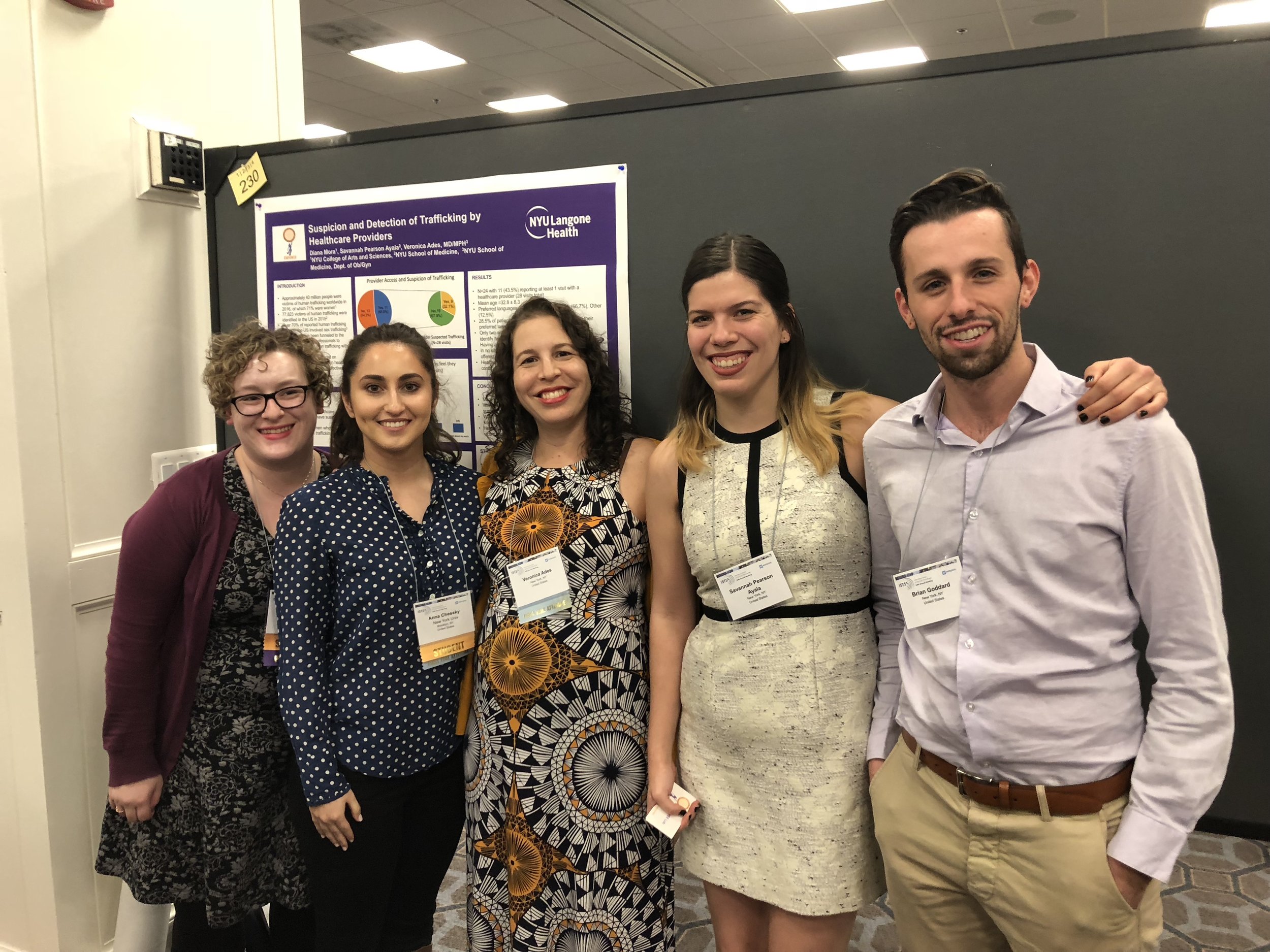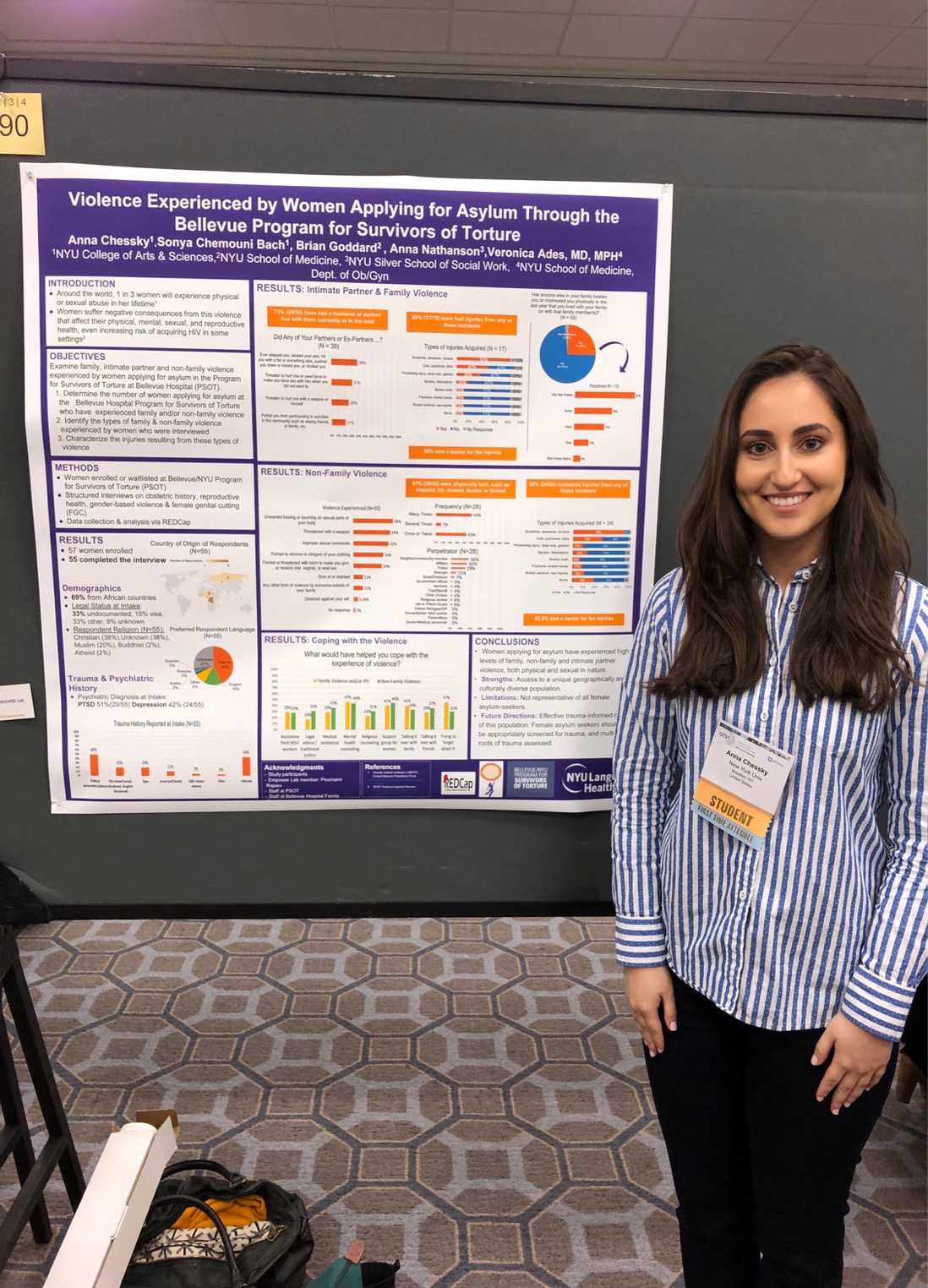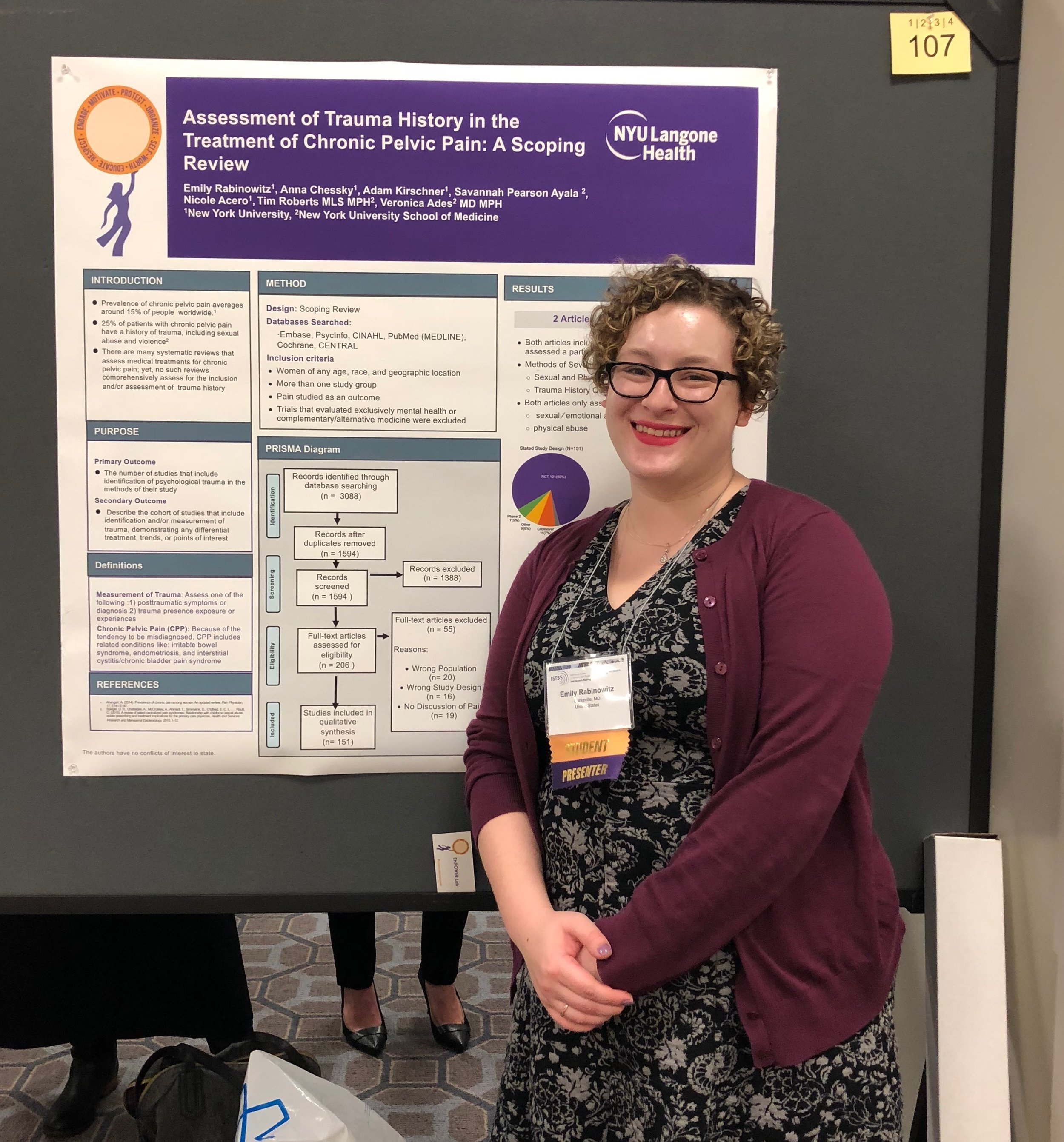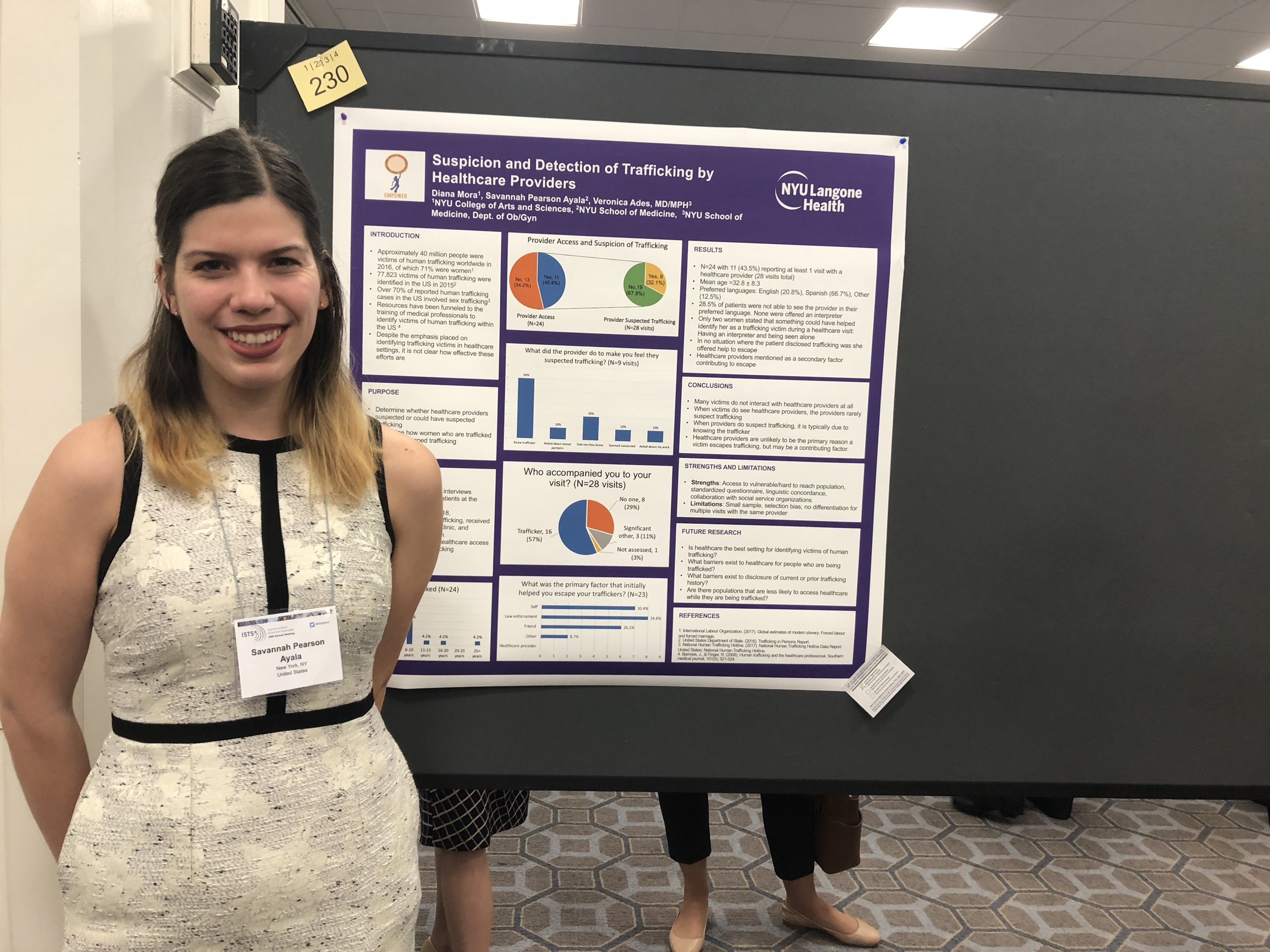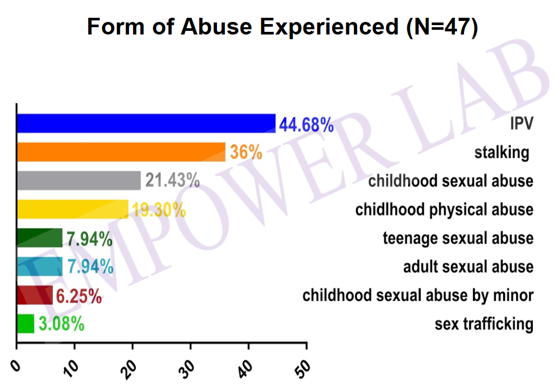Washington, D.C., USA - 34th Annual Meeting.
The ISTSS Annual Meeting is an ideal platform to learn about recent advances in the field and how they can be used to improve recovery from trauma-related disorders. The theme of this year’s meeting was “Promoting Societal Change: Integrating Traumatic Stress Research, Practice and Policy for Vulnerable Populations.” Professionals dedicated to trauma treatment, education, research and prevention, regularly attend the conference. They are physicians, psychiatrists, psychologists, social workers, and more.
Attendees & Presentations:
Emily Rabinowitz
NYU College of Arts & Sciences Senior
Former Associate Director of Research
“Assessment of Trauma History in the Treatment of Chronic Pelvic Pain” (poster presentation)
Anna Chessky
NYU College of Arts & Sciences Senior
Associate Director of Research
“Violence Experienced by Women Applying for Asylum Through the Bellevue Program for Survivors of Torture” (poster presentation)
Savannah Pearson Ayala
2nd year NYU Medical Student
Research Assistant
“Suspicion and Detection of Trafficking by Healthcare Providers” (poster presentation #1)
“Prevalence of Sexual Trauma Among Women Presenting for Outpatient Ob/Gyn Care in an Urban, Low-income Health Facility” (poster presentation #2)
Brian Goddard
2nd year NYU Medical Student
Research Assistant, EMPOWER Clinic Team Leader
“Diagnoses of Major Depressive Disorder and Post-Traumatic Stress Disorder among Patients at the EMPOWER Clinic” (poster presentation)
Thoughts from Our Attendees:
What was special about attending ISTSS?
“Attending ISTSS was unique because of its emphasis on trauma-informed care from an interdisciplinary approach. We were exposed to people applying treatments, interventions, assessing biomarkers, and a whole range of other constructs, all in one place.”
- EMILY RABINOWITZ
“It was a unique conference compared to some of the other conferences I've been to because of the multi-disciplinary and inter-professional aspect of the conference. There were professionals with several other different backgrounds besides medicine, but everyone there was knowledgeable and interested in how trauma can affect one's psychological and physical well-being.”
- BRIAN GODDARD
What did it inspire you to do next?
“It was a different experience to be surrounded by people who are also interested in trauma. However even then, people were coming at it more from a purely scientific perspective than a clinical perspective so there still seem to be major gaps on the side of clinician interest in the effects of trauma”
- SAVANNAH PEARSON AYALA
“Seeing labs and research teams that employed a multi-disciplinary approach to studying trauma and identifying how it manifests into psychological distress and/or physical pain made me eager to continue my work at the Empower Lab, and inspired me to think of new research studies that could build upon those at the conference.”


